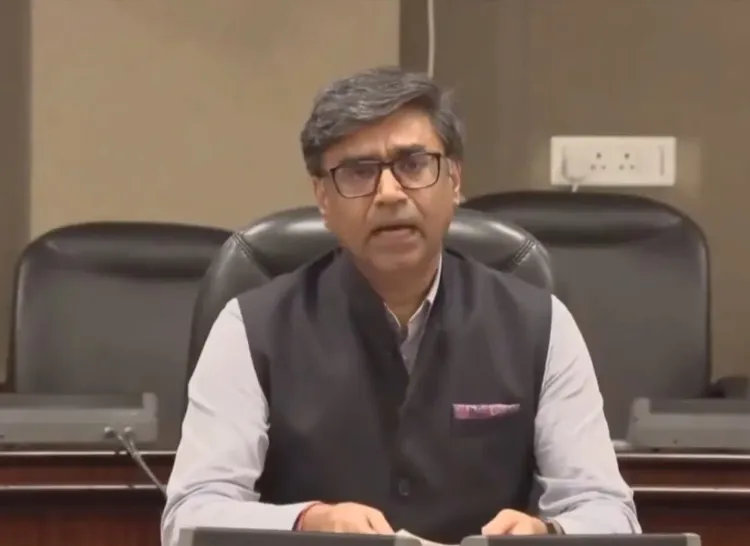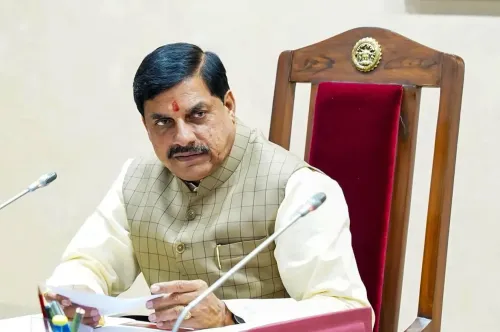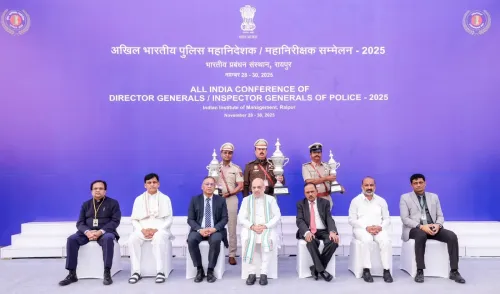Is the Indian Army Responding Adequately to Pakistan's Ceasefire Violations?

Synopsis
Key Takeaways
- Indian armed forces are actively responding to Pakistani ceasefire violations.
- The situation is being closely monitored by the Army.
- There are serious implications for India-Pakistan relations.
- Pakistan's actions have been condemned by Indian officials.
- There's a call for immediate action from Pakistan to halt aggression.
New Delhi, May 10 (NationPress) Foreign Secretary Vikram Misri stated on Saturday that the Indian armed forces are taking decisive action in response to the ceasefire violations committed by the Pakistani army, despite a newly announced truce between the nations just a few hours prior.
During a press briefing, Misri expressed that the government has noted the serious implications of Pakistani conduct. “This constitutes a breach of agreement. The army is vigilantly monitoring the situation,” he commented.
He mentioned that the consensus to cease hostilities was achieved earlier that evening. However, in subsequent hours, there were significant violations from the Pakistani side.
“Indian soldiers are executing retaliatory measures in response to this border incursion. This aggression is unequivocally condemnable, and the responsibility lies with Pakistan. We urge Pakistan to grasp the seriousness of this situation and take immediate corrective actions to halt further aggression,”
he added. The Army is closely observing the developments and has been directed to implement robust measures against any incursions.
It is noteworthy that Pakistan has engaged in ceasefire violations even as both countries had agreed to a truce on land, air, and sea starting from 5 p.m. on Saturday.
Despite the ceasefire announcement by India and Pakistan, violations occurred on Saturday evening in regions including Akhnoor, Mendhar, R.S. Pura, Chamb, Bhimber, and Gurez, with loud explosions reported in Srinagar.
The Chief Minister of Jammu and Kashmir, Omar Abdullah, expressed concern on social media: “What just occurred to the ceasefire? Explosions are heard all over Srinagar. This is not a ceasefire. The air defense units in Srinagar have just opened fire.”
Reports confirmed that drones were spotted and downed in the Badami Bagh Cantonment area of Srinagar, where the headquarters of the Army's 15th Corps is located. A blackout was reported in Srinagar following the loud explosions.
Blackouts were also observed in Kathua and Baramulla districts immediately after the ceasefire violations and drone sightings across some areas along the LoC.
Reports indicated a drone was downed in Baramulla town as well, with ceasefire violations noted in the Arnia sector of the international border in the Samba district.
Sirens resonated throughout Akhnoor and Baramulla towns.
Earlier, following the successful completion of Operation Sindoor and the announcement of a ceasefire with Pakistan, Prime Minister Narendra Modi convened a high-level meeting with Defence Minister Rajnath Singh to commend the armed forces for their decisive actions.
PM Modi also evaluated the outcomes of the operation, which resulted in the destruction of nine terrorist platforms in Pakistan, damage to over a dozen Pakistani air bases, significant degradation of Pakistani morale, and a ceasefire on India's terms.
The ceasefire announcement ignited spontaneous celebrations across the nation, particularly in border regions of Jammu and Kashmir and Rajasthan, where crowds chanted slogans of “Bharat Mata ki Jai”.









